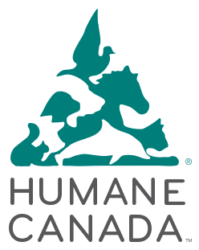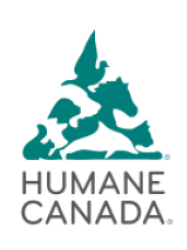
You can help make puppy mills a thing of the past.
Humane Canada is working hard to put a stop to puppy mills by educating Canadians to adopt their next puppy from a reputable rescue, humane society or SPCA or choosing a responsible breeder who provides a healthy, loving environment for their dogs.
Puppy mills are inhumane high-volume breeding facilities that put profit above welfare. We estimate that there are thousands of active inhumane breeders across Canada. Life in a small, cramped cage with poor sanitation and no love or attention – is no life at all. We need to curb the demand to put a halt on the supply.
Before bringing a dog home, take the time to learn about your options and weigh the pros and cons.
In order to do this, we’ve created a, educational toolkit that offers everything you need to know before getting a dog.


Know your options
Adopting
Humane Canada always encourages adoption from a local humane society, SPCA, or rescue. The reason why animals end up in a shelter or foster home vary dramatically: some were lost, some were born homeless, some were rescued from abuse and some were surrendered because an owner developed allergies, had to move, passed away, could no longer afford to care for them or whose lifestyle was a mismatch with an animal’s needs.
Click here to find humane societies and SPCAs that are members of Humane Canada. You can also call your municipal government and ask if there is an animal shelter in your city, town or county.
PetFinder is also a comprehensive database of pets that are up for adoption from humane societies, SPCAs and animal rescue groups throughout North America. You can search for dogs by age, breed, gender and more. (Note: Not all humane societies and SPCAs post their adoptable pets on this website, nor do most municipally-run animal shelters.)
Buying
Ethical Breeders
Humane Canada will always encourage adoption. If you don’t take the time to carefully choose where you get your puppy, you could end up with a dog that suffers from serious medical issues or behavioural problems, causing you a great deal of heartache, frustration and expense. Worse, you could end up unknowingly supporting the cruel puppy mill industry.
Internet classified sites can be a problematic place to look for a purebred dog. It is virtually impossible to tell the difference between a reputable breeder and a puppy mill unless you do an in-person or a video call visit. Puppy mills and backyard breeders are known to use internet classifieds to promote their business and find potential customers. In fact, the Better Business Bureau estimates that 80 per cent of sponsored search links for pet sales may be fraudulent, advertising animals the supposed sellers don’t own.

The only way you can know for sure that a breeder is responsible and humane is to visit (whether in person or via video call) and see first-hand the conditions their breeding dogs and puppies are kept in. Be sure you visit before you hand over any money.
You’ll need to ask specific questions and ask to see certain paperwork to make sure they meet the standards of a good breeder. If the health or vaccine certificates that are provided to you seem dubious, please call the veterinary hospital listed on the record to ensure these aren’t fraudulent.
Reputable Pet Stores
There are many good pet supply stores that don’t sell animals. And there are many stores that operate “satellite adoption centres” for humane societies, SPCAs and rescue groups. Instead of selling cats and dogs, they house and display adoptable animals in their stores. Customers who express an interest in the animals must go through the adoption procedure via the humane society, SPCA or rescue group. By supporting these types of pet stores, you are adopting an animal, saving a life and sending a clear message to other pet stores that the humane option is to operate a satellite adoption centre rather than selling animals.
Importing
Learn more about the Canadian Food Inspection Agency (CFIA)’s import rules for dogs here.
What is a Puppy Broker?
In the summer of 2020, we all had our attention turned when a flight from the Ukraine landed in Toronto carrying approximately 500 puppies stuffed into crates in inhumane conditions. Dozens of them were severely ill and 38 were dead on arrival.
This incident shone a light to the issue of puppy brokers, which are the middlemen who will gather puppies as young as 5 or 6 weeks old from various puppy mills and backyard breeders, selling them online, usually for large amounts of money (anywhere between $3,000 – $6,000 per pup), and transporting them long distances to supply various stores and keen buyers.
Watch this report by CBC Marketplace investigating the growing puppy trade in Canada. This report aired in November 2020.
More recently, CBC News reported that the Canadian Food Inspection Agency (CFIA) has targeted at least six puppy brokers in raids, focusing attention on an opaque multi-million-dollar business that animal welfare and veterinary groups have repeatedly warned about. The imported animals are often raised in poor conditions and arrive in the country unhealthy and sometimes, with forged vaccination records. Read more here.
Please educate yourself and help us educate others by sharing this page.


